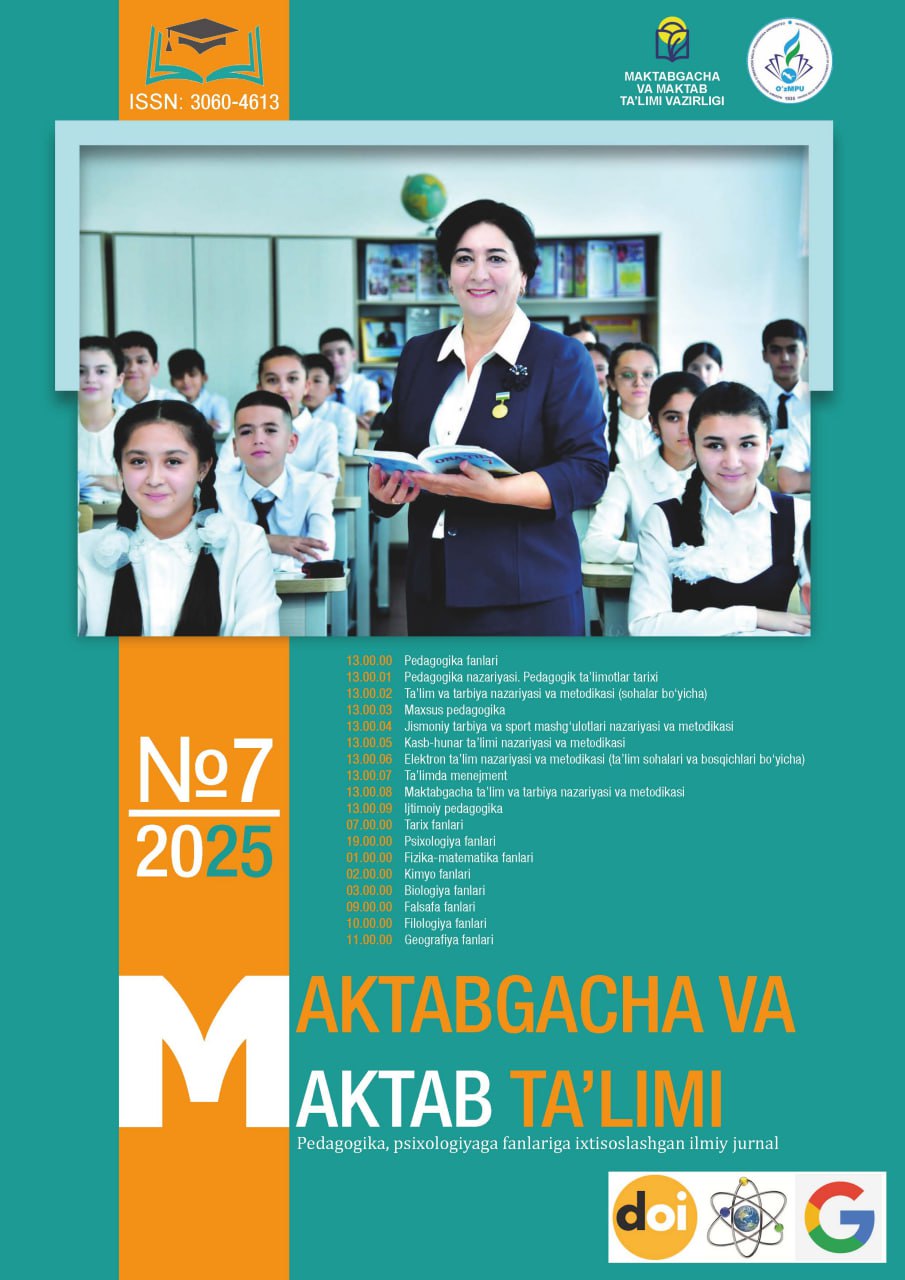Fostering Metacognitive Skills in Efl Learners Through Ai-Supported Instruction: a Review of Recent Literature
DOI:
https://doi.org/10.5281/zenodo.15812090Ключевые слова:
Metacognition, Artificial Intelligence in education, EFL learners, Self-regulated learning, AI-assisted language learning, Reflective learning, Intelligent tutoring systems, Learning analytics dashboards, Meta-learning strategies, Digital pedagogy.Аннотация
In recent years, metacognitive competence – learners’ ability to reflect on, regulate, and adapt their own
thinking – has become a central concern in English as a Foreign Language (EFL) education. With the rapid integration of
Artificial Intelligence (AI) technologies in language classrooms, new opportunities have emerged to support metacognitive
growth through tools such as adaptive learning platforms, intelligent feedback systems, and AI-driven reflective prompts.
This literature review synthesizes recent research (2021–2025) on how AI-supported instruction can foster core metacognitive
skills – planning, monitoring, and evaluating – among EFL learners. It examines theoretical models, empirical
studies, and pedagogical frameworks, highlighting both the benefits and risks of AI use. While AI can act as a “digital
mirror” that enhances self-awareness and learner autonomy, concerns around over-reliance, ethical design, and unequal
access remain significant. The article concludes with recommendations for integrating AI into EFL pedagogy in ways that
support learner agency, critical reflection, and long-term cognitive development
Библиографические ссылки
Flavell, J. H. (1979). Metacognition and cognitive monitoring: A new area of cognitive–developmental inquiry. American
Psychologist, 34(10), 906–911. https://doi.org/10.1037/0003-066X.34.10.906
Schraw, G., & Moshman, D. (1995). Metacognitive theories. Educational Psychology Review, 7(4), 351–371. https://
doi.org/10.1007/BF02212307
Wenden, A. (1998). Metacognitive knowledge and language learning. Applied Linguistics, 19(4), 515–537. https://doi.
org/10.1093/applin/19.4.515
Oxford, R. L. (2011). Teaching and researching language learning strategies. Pearson Education.
Lin, S., & Zhang, D. (2021). The impact of AI-powered self-explanation prompts on metacognition and learning outcomes.
In Proceedings of the 2021 International Conference on Intelligent User Interfaces (pp. 720–729). ACM. https://
doi.org/10.1145/3397481.3450691
Xu, B., & Hwang, G.-J. (2022). Toward a framework for designing AI-powered learning companions to foster metacognition.
Educational Technology Research and Development, 70(6), 2119–2141. https://doi.org/10.1007/s11423-022-
-1
Chen, W., & Liu, Y. (2022). Using artificial intelligence to foster metacognitive reflection in learning analytics dashboards.
Journal of Learning Analytics, 9(2), 110–126. https://doi.org/10.1016/j.chb.2022.107158
Mazari, N. (2025). Building metacognitive skills with AI: Using AI tools to help learners reflect on their learning process.
Revista Humanismo y Sociedad, 13(1), 1–20. https://doi.org/10.22209/rhs.v13n1a04
Khotimah, K., Rusijono, R., & Mariono, A. (2024). Enhancing metacognitive and creativity skills through AI-driven
meta-learning strategies. International Journal of Interactive Mobile Technologies (iJIM), 18(5), 18–31. https://doi.
org/10.3991/ijim.v18i05.47705
Johnpaul, M., Miryala, B., Jayaprakashnarayana, G., & Miryala, R. K. (2025). Pros and cons of artificial intelligence on
metacognition: A myopic state with long-term consequences on human learning. In Hybrid and Advanced Technologies
(pp. 98–103). Taylor & Francis. https://doi.org/10.1201/9781003559139-13
Wang, Y., & Aleven, V. (2023). Can adaptive learning with metacognitive prompts help students learn better? An eyetracking
study. Computers & Education, 198, 104715. https://doi.org/10.1016/j.compedu.2023.104715
Song, Y., & Rose, J. (2022). Investigating the role of peer-review with AI-powered feedback in developing metacognitive
skills. British Journal of Educational Technology, 53(4), 876–893. https://doi.org/10.1111/bjet.13177
Paludo, G., & Montresor, A. (2023). Fostering metacognitive skills in programming: Leveraging AI to reflect on code. In
Proceedings of the 2023 ACM SIGCSE Technical Symposium on Computer Science Education (pp. 112–118). ACM.
https://doi.org/10.1145/3545945.3569824
Holmes, W., Bialik, M., & Fadel, C. (2022). Artificial Intelligence in education: Promises and implications for teaching
and learning. Center for Curriculum Redesign.
Загрузки
Опубликован
Выпуск
Раздел
Лицензия
Copyright (c) 2025 MAKTABGACHA VA MAKTAB TA’LIMI JURNALI

Это произведение доступно по лицензии Creative Commons «Attribution» («Атрибуция») 4.0 Всемирная.

